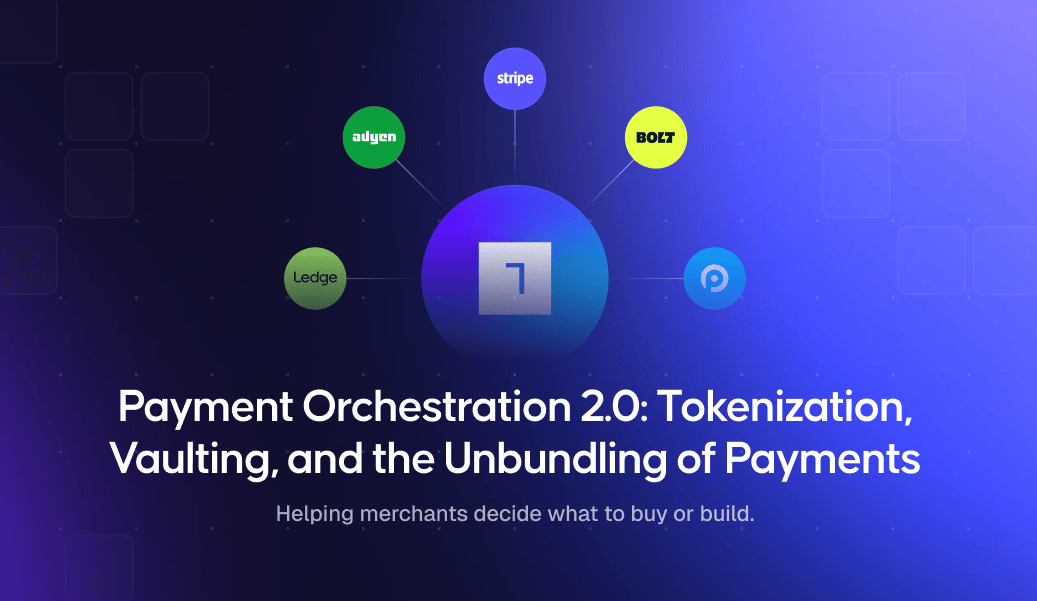Payment Orchestration 2.0
The market has clearly signaled to merchants that payment orchestration is valuable. But with no ubiquitious specification or protocol, ambitions are being met with limited engineering resources.
So how can a merchant achieve payment orchestration? Buy the functionality? How to prioritize what to build?
Let us help you make that decision. Fill out the form to access the content where we go into detail about each option a merchant has.

NEXT STEPS
Download the PDF
Review your options as a merchant before buying or building a payment orchestration solution.
How is Basis Theory Different?
Comparing Basis Theory and Traditional Orchestration Platforms
| Basis Theory (Orchestration 2.0) | Orchestration 1.0 | |
|---|---|---|
| Compliance |
|
|
| Customer Support |
|
Customers often receive support by accessing help center documentation or submitting a request. |
| Integrations |
Integrate with PSPs, payment gateways, and third-party APIs |
Integrate with PSPs, payment gateways, and third-party APIs |
| Transaction Flows |
Offering both proxy service and managed connections, Basis Theory does not sit in the middle of MIT transactions. |
All processing goes through orchestration platform, creating risks of single-point-of-failure. Customers have little control over payments and lose ability to process if orchestrator has outage. |
| Pricing |
No usage-based fees. Pricing grows with your organization:
|
Contracts with usage-based per-transaction fees. This is on top of usage-based processing fees you'd also experience with PSPs. |
| Documentation |
Developer-focused documentation with helpful getting started guides |
Comprehensive API documentation |
| Migrating |
Transparent migration guides No vendor lock-in; offers helpful guides to migrate off Basis Theory should the need arise |
Guides to migrate to the platform but not to migrate off the platform |
"Basis Theory made us PCI compliant in a day, rather than months. The team has been a delight to work with and they beat other tokenization platforms on cost."